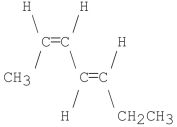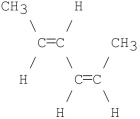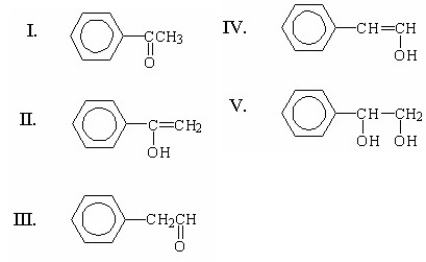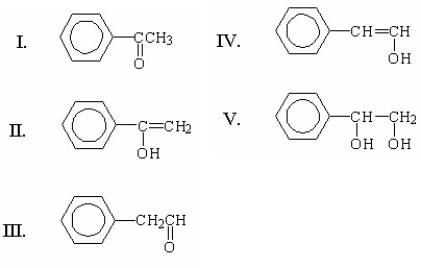Deck 7: Reactions of Alkynes Introduction to Multistep Synthesis
Question
Question
Question
Question
Question
Question
Question
Question
Question
Question
Question
Question
Question
Question
Question
Question
Question
Question
Question
Question
Question
Question
Question
Question
Question
Question
Question
Question
Question
Question
Question
Question
Question
Question
Question
Question
Question
Question
Question
Question
Question
Question
Question
Question
Question
Question
Question
Question
Question
Question
Question
Question
Question
Question
Question
Question
Question
Question
Question
Question
Question
Question
Question
Question
Question
Question
Question
Question
Question
Question
Question
Question
Question
Question
Question
Question
Question
Question
Question
Question

Unlock Deck
Sign up to unlock the cards in this deck!
Unlock Deck
Unlock Deck
1/119
Play
Full screen (f)
Deck 7: Reactions of Alkynes Introduction to Multistep Synthesis
1
What is the common name for the following alkyne? 
A)neohexyne
B)trimethylpropyne
C)trimethylacetylene
D)tert-butylacetylene
E)isopropylacetylene

A)neohexyne
B)trimethylpropyne
C)trimethylacetylene
D)tert-butylacetylene
E)isopropylacetylene
tert-butylacetylene
2
Give the IUPAC name for HCCCH2CH2CH3.
1-pentyne
3
What is the IUPAC name for the following compound? 
A)cis, trans-2, 4-heptadiene
B)2Z,4Z-2, 4-heptadiene
C)cis, cis-2, 4-heptadiene
D)trans, trans-2, 4-heptadiene
E)2E,4E-2, 4-heptadiene

A)cis, trans-2, 4-heptadiene
B)2Z,4Z-2, 4-heptadiene
C)cis, cis-2, 4-heptadiene
D)trans, trans-2, 4-heptadiene
E)2E,4E-2, 4-heptadiene
cis, trans-2, 4-heptadiene
4
Name the following compound. 


Unlock Deck
Unlock for access to all 119 flashcards in this deck.
Unlock Deck
k this deck
5
Draw an acceptable structure for 3-sec-butyl-1-heptyne.

Unlock Deck
Unlock for access to all 119 flashcards in this deck.
Unlock Deck
k this deck
6
Draw an acceptable structure for acetylene.

Unlock Deck
Unlock for access to all 119 flashcards in this deck.
Unlock Deck
k this deck
7
Give the IUPAC name for (CH3)2C(CH2CH3)CCCH(CH3)2.

Unlock Deck
Unlock for access to all 119 flashcards in this deck.
Unlock Deck
k this deck
8
Give the IUPAC name for BrCH2CH2CCCH2CH3.

Unlock Deck
Unlock for access to all 119 flashcards in this deck.
Unlock Deck
k this deck
9
What is the IUPAC name for the following alkyne? 
A)5-Bromo-2-heptyne
B)3-Bromo-5-heptyne
C)2-Bromo-2-methyl-4-hexyne
D)5-Bromo-5,5-dimethylhexyne
E)5-Bromo-5-methyl-2-hexyne

A)5-Bromo-2-heptyne
B)3-Bromo-5-heptyne
C)2-Bromo-2-methyl-4-hexyne
D)5-Bromo-5,5-dimethylhexyne
E)5-Bromo-5-methyl-2-hexyne

Unlock Deck
Unlock for access to all 119 flashcards in this deck.
Unlock Deck
k this deck
10
How many distinct internal alkynes exist with a molecular formula of C6H10?
A)1
B)2
C)3
D)4
E)5
A)1
B)2
C)3
D)4
E)5

Unlock Deck
Unlock for access to all 119 flashcards in this deck.
Unlock Deck
k this deck
11
Provide the structure of all distinct terminal alkynes with a molecular formula of C6H10.

Unlock Deck
Unlock for access to all 119 flashcards in this deck.
Unlock Deck
k this deck
12
Provide an acceptable name for the compound shown. 


Unlock Deck
Unlock for access to all 119 flashcards in this deck.
Unlock Deck
k this deck
13
Write structures and give IUPAC names for all alkynes with molecular formula C5H8.

Unlock Deck
Unlock for access to all 119 flashcards in this deck.
Unlock Deck
k this deck
14
Give the systematic name for the alkyne Cl3CCH2CH2CCCH3.

Unlock Deck
Unlock for access to all 119 flashcards in this deck.
Unlock Deck
k this deck
15
How many distinct terminal alkynes exist with a molecular formula of C5H8?
A)1
B)2
C)3
D)4
E)5
A)1
B)2
C)3
D)4
E)5

Unlock Deck
Unlock for access to all 119 flashcards in this deck.
Unlock Deck
k this deck
16
Draw an acceptable structure for 2-hexyne.

Unlock Deck
Unlock for access to all 119 flashcards in this deck.
Unlock Deck
k this deck
17
Name the following compound. 
A)3-heptyn-6-ol
B)3-hepten-6-ol
C)4-hepten-2-ol
D)4-heptyn-2-ol
E)4-heptan-2-ol

A)3-heptyn-6-ol
B)3-hepten-6-ol
C)4-hepten-2-ol
D)4-heptyn-2-ol
E)4-heptan-2-ol

Unlock Deck
Unlock for access to all 119 flashcards in this deck.
Unlock Deck
k this deck
18
Give the IUPAC name for the following compound. 
A)isoprene
B)3-methyl-1,3-butadiene
C)2-methyl-1,3-butadiene
D)2-methyl-2,3-butadiene
E)isobutadiene

A)isoprene
B)3-methyl-1,3-butadiene
C)2-methyl-1,3-butadiene
D)2-methyl-2,3-butadiene
E)isobutadiene

Unlock Deck
Unlock for access to all 119 flashcards in this deck.
Unlock Deck
k this deck
19
Provide the systematic name of the compound shown. 


Unlock Deck
Unlock for access to all 119 flashcards in this deck.
Unlock Deck
k this deck
20
Give the systematic name of the compound shown below. 


Unlock Deck
Unlock for access to all 119 flashcards in this deck.
Unlock Deck
k this deck
21
Provide the systematic name of the compound shown. 


Unlock Deck
Unlock for access to all 119 flashcards in this deck.
Unlock Deck
k this deck
22
________ is produced when 1 equivalent of HBr is added to 1-hexyne in the presence of peroxides.
A)2-bromo-1-hexene
B)E-1-bromo-1-hexene
C)Z-1-bromo-1-hexene
D)a mixture of E and Z isomers of 1-bromo-1-hexene
E)E-2-bromo-2-hexene
A)2-bromo-1-hexene
B)E-1-bromo-1-hexene
C)Z-1-bromo-1-hexene
D)a mixture of E and Z isomers of 1-bromo-1-hexene
E)E-2-bromo-2-hexene

Unlock Deck
Unlock for access to all 119 flashcards in this deck.
Unlock Deck
k this deck
23
Provide the structure of the major organic product of the following reaction. 


Unlock Deck
Unlock for access to all 119 flashcards in this deck.
Unlock Deck
k this deck
24
Which of the following is the best synthesis of 2, 2-dibromopropane 
A)
B)
C)CH3C CH
CH 
D)
E)

A)

B)

C)CH3C
 CH
CH 
D)

E)


Unlock Deck
Unlock for access to all 119 flashcards in this deck.
Unlock Deck
k this deck
25
Which of the following statements correctly describes the general reactivity of alkynes?
A)An alkyne is an electron-rich molecule and therefore reacts as a nucleophile.
B)The σ bonds of alkynes are higher in energy than the π bonds and are thus more reactive.
C)Unlike alkenes, alkynes fail to undergo electrophilic addition reactions.
D)Alkynes are generally more reactive than alkenes.
E)Alkynes react as electrophiles, whereas alkenes reacts as nucleophiles.
A)An alkyne is an electron-rich molecule and therefore reacts as a nucleophile.
B)The σ bonds of alkynes are higher in energy than the π bonds and are thus more reactive.
C)Unlike alkenes, alkynes fail to undergo electrophilic addition reactions.
D)Alkynes are generally more reactive than alkenes.
E)Alkynes react as electrophiles, whereas alkenes reacts as nucleophiles.

Unlock Deck
Unlock for access to all 119 flashcards in this deck.
Unlock Deck
k this deck
26
The carbon-carbon triple bond of an alkyne is composed of ________.
A)three σ bonds
B)two σ bonds and one π bond
C)one σ bond and two π bonds
D)three π bonds
A)three σ bonds
B)two σ bonds and one π bond
C)one σ bond and two π bonds
D)three π bonds

Unlock Deck
Unlock for access to all 119 flashcards in this deck.
Unlock Deck
k this deck
27
What are the hybridizations of the carbon atoms numbered 1 and 2 in the structure below? 1 2
H3C-CH CH-C
CH-C  C-H
C-H
A)sp3, sp2
B)sp2, sp2
C)sp2, sp
D)sp, sp
H3C-CH
 CH-C
CH-C  C-H
C-HA)sp3, sp2
B)sp2, sp2
C)sp2, sp
D)sp, sp

Unlock Deck
Unlock for access to all 119 flashcards in this deck.
Unlock Deck
k this deck
28
What is the major product of the following reaction? HCl
CH3C CH
CH 
A)
B)
C)CH3CH CH-Cl
CH-Cl
D)
E)
CH3C
 CH
CH 
A)

B)

C)CH3CH
 CH-Cl
CH-ClD)

E)


Unlock Deck
Unlock for access to all 119 flashcards in this deck.
Unlock Deck
k this deck
29
Which of the following statements is not true about propyne, HC  C-CH3?
C-CH3?
A)It contains six sigma bonds.
B)It contains three pi bonds.
C)The H-C-H bond angle is about 109.5°.
D)The C-C-C bond angle is 180°.
E)The pi bond is weaker than the sigma bond.
 C-CH3?
C-CH3?A)It contains six sigma bonds.
B)It contains three pi bonds.
C)The H-C-H bond angle is about 109.5°.
D)The C-C-C bond angle is 180°.
E)The pi bond is weaker than the sigma bond.

Unlock Deck
Unlock for access to all 119 flashcards in this deck.
Unlock Deck
k this deck
30
Name the following compound: 


Unlock Deck
Unlock for access to all 119 flashcards in this deck.
Unlock Deck
k this deck
31
What two atomic orbitals or hybrid atomic orbitals overlap to form the carbon-carbon σ bond in ethyne?
A)sp3-sp3
B)p-p
C)sp2-sp2
D)s-s
E)sp-sp
A)sp3-sp3
B)p-p
C)sp2-sp2
D)s-s
E)sp-sp

Unlock Deck
Unlock for access to all 119 flashcards in this deck.
Unlock Deck
k this deck
32
Although you might expect 1-propyne to be more reactive than 1-propene in electrophilic addition reactions, the reverse is true. Explain this using your knowledge of the mechanism of electrophilic additions to both alkynes and alkenes.

Unlock Deck
Unlock for access to all 119 flashcards in this deck.
Unlock Deck
k this deck
33
Which of the following compounds is the major product when 1-hexyne is treated with excess HBr?
A)1,1-dibromohexane
B)1,1-dibromohexene
C)1,2-dibromohexene
D)1,2-dibromohexane
E)2,2-dibromohexane
A)1,1-dibromohexane
B)1,1-dibromohexene
C)1,2-dibromohexene
D)1,2-dibromohexane
E)2,2-dibromohexane

Unlock Deck
Unlock for access to all 119 flashcards in this deck.
Unlock Deck
k this deck
34
Give the systematic name of the compound shown below. 


Unlock Deck
Unlock for access to all 119 flashcards in this deck.
Unlock Deck
k this deck
35
Provide the structure of the major organic product of the following reaction. 


Unlock Deck
Unlock for access to all 119 flashcards in this deck.
Unlock Deck
k this deck
36
Provide the structure of the major organic product(s)in the reaction below. 


Unlock Deck
Unlock for access to all 119 flashcards in this deck.
Unlock Deck
k this deck
37
In the addition of hydrogen bromide to alkynes in the absence of peroxides, which of the following species is believed to be an intermediate?
A)vinyl anion
B)vinyl cation
C)vinyl radical
D)carbene
E)bromonium ion
A)vinyl anion
B)vinyl cation
C)vinyl radical
D)carbene
E)bromonium ion

Unlock Deck
Unlock for access to all 119 flashcards in this deck.
Unlock Deck
k this deck
38
What are the hybridizations of the carbon atoms numbered 1 and 2 respectively in the following structure? 
A)sp3, sp2
B)sp2, sp2
C)sp, sp
D)sp2, sp
E)sp, sp2

A)sp3, sp2
B)sp2, sp2
C)sp, sp
D)sp2, sp
E)sp, sp2

Unlock Deck
Unlock for access to all 119 flashcards in this deck.
Unlock Deck
k this deck
39
Which of the following improperly describes the physical properties of an alkyne?
A)relatively nonpolar
B)nearly insoluble in water
C)less dense than water
D)insoluble in most organic solvents
A)relatively nonpolar
B)nearly insoluble in water
C)less dense than water
D)insoluble in most organic solvents

Unlock Deck
Unlock for access to all 119 flashcards in this deck.
Unlock Deck
k this deck
40
Provide the structure of (2E,4E)-2-chloro-2,4-octadiene.

Unlock Deck
Unlock for access to all 119 flashcards in this deck.
Unlock Deck
k this deck
41
Provide the major organic product in the reaction below. 


Unlock Deck
Unlock for access to all 119 flashcards in this deck.
Unlock Deck
k this deck
42
Provide the structure of the major organic product(s)in the reaction below. 


Unlock Deck
Unlock for access to all 119 flashcards in this deck.
Unlock Deck
k this deck
43
Provide the structure of the major organic produt that results when 2-butyne is treated with 1 equivalent of Br2

Unlock Deck
Unlock for access to all 119 flashcards in this deck.
Unlock Deck
k this deck
44
Provide the structure of the major organic produt that results when 2-butyne is treated with 2 equivalents of HCl.

Unlock Deck
Unlock for access to all 119 flashcards in this deck.
Unlock Deck
k this deck
45
Give the major organic product for the reaction. 
A)
B)
C)
D)CH3CH2CH2CH CHOH
CHOH
E)

A)

B)

C)

D)CH3CH2CH2CH
 CHOH
CHOHE)


Unlock Deck
Unlock for access to all 119 flashcards in this deck.
Unlock Deck
k this deck
46
Provide the major organic product in the reaction below. 


Unlock Deck
Unlock for access to all 119 flashcards in this deck.
Unlock Deck
k this deck
47
Give the major organic product for the reaction. 
A)
B)
C)
D)
E)

A)

B)

C)

D)

E)


Unlock Deck
Unlock for access to all 119 flashcards in this deck.
Unlock Deck
k this deck
48
Provide the major organic product in the reaction below. 


Unlock Deck
Unlock for access to all 119 flashcards in this deck.
Unlock Deck
k this deck
49
Which of the following are enol forms of 2-butanone, 
A)
B)
C)
D)
E)

A)

B)

C)

D)

E)


Unlock Deck
Unlock for access to all 119 flashcards in this deck.
Unlock Deck
k this deck
50
Give the best reagents for the reaction. 
A)H2SO4, HgSO4, HgSO4
B)1) disiamylborane, 2. HO-, H2O, H2O2
C)K2Cr2O7, H+
D)NaOCl
E)H2, Pd

A)H2SO4, HgSO4, HgSO4
B)1) disiamylborane, 2. HO-, H2O, H2O2
C)K2Cr2O7, H+
D)NaOCl
E)H2, Pd

Unlock Deck
Unlock for access to all 119 flashcards in this deck.
Unlock Deck
k this deck
51
For the reaction below indicate whether the equilibrium constant will be greater than 1 or less than 1.
CH3CH2CHO ⇌ CH3CH CHOH
CHOH
CH3CH2CHO ⇌ CH3CH
 CHOH
CHOH
Unlock Deck
Unlock for access to all 119 flashcards in this deck.
Unlock Deck
k this deck
52
Provide the major organic product in the reaction below. 


Unlock Deck
Unlock for access to all 119 flashcards in this deck.
Unlock Deck
k this deck
53
Provide the structure of the intermediate which forms in the first step of the reaction of 1-butyne with water in the presence of H2SO4/HgSO4.

Unlock Deck
Unlock for access to all 119 flashcards in this deck.
Unlock Deck
k this deck
54
Provide the structure of the major organic produt that results when 2-butyne is treated with 1 equivalent of HCl.

Unlock Deck
Unlock for access to all 119 flashcards in this deck.
Unlock Deck
k this deck
55
Provide the major organic product in the reaction below. 


Unlock Deck
Unlock for access to all 119 flashcards in this deck.
Unlock Deck
k this deck
56
Which of the following is the final and major product of this reaction? 

A)I
B)II
C)III
D)IV
E)V


A)I
B)II
C)III
D)IV
E)V

Unlock Deck
Unlock for access to all 119 flashcards in this deck.
Unlock Deck
k this deck
57
Provide the structure of the major organic product of the following reaction. 


Unlock Deck
Unlock for access to all 119 flashcards in this deck.
Unlock Deck
k this deck
58
Give the major organic product for the reaction. 
A)
B)
C)
D)
E)

A)

B)

C)

D)

E)


Unlock Deck
Unlock for access to all 119 flashcards in this deck.
Unlock Deck
k this deck
59
Which of the following is the final and major product of this reaction? 

A)I
B)II
C)III
D)IV
E)V


A)I
B)II
C)III
D)IV
E)V

Unlock Deck
Unlock for access to all 119 flashcards in this deck.
Unlock Deck
k this deck
60
Provide the major organic product in the reaction below. 


Unlock Deck
Unlock for access to all 119 flashcards in this deck.
Unlock Deck
k this deck
61
Provide the structure of the major organic product of the following reaction. 


Unlock Deck
Unlock for access to all 119 flashcards in this deck.
Unlock Deck
k this deck
62
In the reduction of alkynes using sodium in liquid ammonia, which of the species below is not an intermediate in the commonly accepted mechanism?
A)vinyl anion
B)vinyl radical
C)radical anion
D)vinyl cation
A)vinyl anion
B)vinyl radical
C)radical anion
D)vinyl cation

Unlock Deck
Unlock for access to all 119 flashcards in this deck.
Unlock Deck
k this deck
63
Provide the structure of the major organic product of the following reaction. 


Unlock Deck
Unlock for access to all 119 flashcards in this deck.
Unlock Deck
k this deck
64
Provide the structure of the major organic product(s)in the reaction below. 


Unlock Deck
Unlock for access to all 119 flashcards in this deck.
Unlock Deck
k this deck
65
A mixture of 1-heptyne, 2-heptyne, and 3-heptyne was hydrogenated in the presence of a platinum catalyst until hydrogen uptake ceased. If one assumes that the hydrogenation went to completion, how many distinct seven-carbon hydrocarbons were produced?
A)1
B)2
C)3
D)6
E)8
A)1
B)2
C)3
D)6
E)8

Unlock Deck
Unlock for access to all 119 flashcards in this deck.
Unlock Deck
k this deck
66
Complete the following reaction. 


Unlock Deck
Unlock for access to all 119 flashcards in this deck.
Unlock Deck
k this deck
67
Provide the major organic product in the reaction below. 


Unlock Deck
Unlock for access to all 119 flashcards in this deck.
Unlock Deck
k this deck
68
Complete the following reaction.
3-hexyne
3-hexyne


Unlock Deck
Unlock for access to all 119 flashcards in this deck.
Unlock Deck
k this deck
69
Which of the alkyne addition reactions below involves an enol intermediate?
A)hydroboration/oxidation
B)treatment with HgSO4 in dilute H2SO4
C)hydrogenation
D)both A and B
E)both A and C
A)hydroboration/oxidation
B)treatment with HgSO4 in dilute H2SO4
C)hydrogenation
D)both A and B
E)both A and C

Unlock Deck
Unlock for access to all 119 flashcards in this deck.
Unlock Deck
k this deck
70
Provide the major organic product in the reaction below. 


Unlock Deck
Unlock for access to all 119 flashcards in this deck.
Unlock Deck
k this deck
71
Give the major organic product for the reaction. 
A)
B)
C)
D)CH3CH2CH2CH CHOH
CHOH
E)

A)

B)

C)

D)CH3CH2CH2CH
 CHOH
CHOHE)


Unlock Deck
Unlock for access to all 119 flashcards in this deck.
Unlock Deck
k this deck
72
The reagent needed to convert 2-butyne to trans-2-butene is ________.
A)H2/Pt
B)H2/Lindlar's catalyst
C)Li/NH3
D)Na/NH3
E)C or D
A)H2/Pt
B)H2/Lindlar's catalyst
C)Li/NH3
D)Na/NH3
E)C or D

Unlock Deck
Unlock for access to all 119 flashcards in this deck.
Unlock Deck
k this deck
73
Provide the structure of the major organic product(s)in the reaction below.
CH3CH2-C C-CH3
C-CH3 
CH3CH2-C
 C-CH3
C-CH3 

Unlock Deck
Unlock for access to all 119 flashcards in this deck.
Unlock Deck
k this deck
74
Provide the structure of the major organic product of the following reaction. 


Unlock Deck
Unlock for access to all 119 flashcards in this deck.
Unlock Deck
k this deck
75
Provide the structure of the major organic produt that results when 2-butyne is treated with HgSO4/H2SO4 in water

Unlock Deck
Unlock for access to all 119 flashcards in this deck.
Unlock Deck
k this deck
76
Provide the structure of the major organic product(s)in the reaction below. 


Unlock Deck
Unlock for access to all 119 flashcards in this deck.
Unlock Deck
k this deck
77
Give the best reagents for the reaction. 
A)H2SO4, HgSO4, HgSO4
B)1) disiamylborane, 2. HO-, H2O, H2O2
C)K2Cr2O7, H+
D)NaOCl
E)H2, Pd

A)H2SO4, HgSO4, HgSO4
B)1) disiamylborane, 2. HO-, H2O, H2O2
C)K2Cr2O7, H+
D)NaOCl
E)H2, Pd

Unlock Deck
Unlock for access to all 119 flashcards in this deck.
Unlock Deck
k this deck
78
An optically active compound (A), C6H10, reacts with H2/Ni to produce compound (B), C6H14. (B)is optically inactive. Deduce the structures of (A)and (B).

Unlock Deck
Unlock for access to all 119 flashcards in this deck.
Unlock Deck
k this deck
79
Provide the structure of the major organic product of the following reaction. 


Unlock Deck
Unlock for access to all 119 flashcards in this deck.
Unlock Deck
k this deck
80
The reagent needed to convert 2-butyne to cis-2-butene is ________.
A)H2/Pt
B)H2/Lindlar's catalyst
C)Li/NH3
D)Na/NH3
E)H+/Zinc dust
A)H2/Pt
B)H2/Lindlar's catalyst
C)Li/NH3
D)Na/NH3
E)H+/Zinc dust

Unlock Deck
Unlock for access to all 119 flashcards in this deck.
Unlock Deck
k this deck


